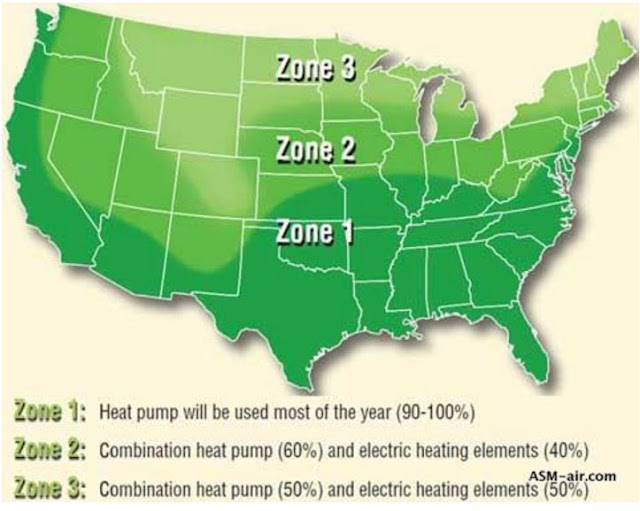Heat Pumps for Residential Use
For the US as a whole, electricity is responsible for 43% of residential GHG emissions. Natural gas for space heating and hot water heating is responsible for 46% of residential GHG emissions nationwide. The remaining 11% is home heating oil, wood, & kerosene. In California, where heating oil is seldom used, space heating and hot water heating are mostly gas comprising 52% of home energy use (click on chart to enlarge).
 |
| Space Heating + Water Heating = 52% of CA Home Energy Use https://www.eia.gov/consumption/residential/reports/2009/state_briefs/ |
 |
| https://www.eia.gov/consumption/residential/reports/2009/state_briefs/ |
"Comparative Energy Use of Residential Gas Furnaces and Electric Heat Pumps"
http://aceee.org/comparative-energy-use-residential-furnaces-and
Below is a hybrid heat pump hot water heater in the Lowe's catalog. The "hybrid" refers to the fact that when the outside air is really cold (below 40) an electric heating element will kick in. Otherwise it uses the much more efficient electric heat pump.
The advantage of heat pumps is not only GHG reduction and the elimination of natural gas, (and of 'fracking') but a considerable cost savings as well as seen in the following chart (click chart to enlarge):
 |
| https://asm-air.com/hvac/heat-pump-vs-furnace-pros-cons/ |
How They Work
Heat pumps are present in most homes. They are called refrigerators and air conditioners! What they are doing is pumping the heat from the inside of an enclosure - refrigerator or room - to the outside. Typically there is a little vent in the bottom or rear of a refrigerator that blows warm air out. A room air conditioner also has to have a heat exhaust to the outside as it moves the heat from the inside."Heat pump water heaters use electricity to move heat from one place to another instead of generating heat directly. Therefore, they can be two to three times more energy efficient than conventional electric resistance water heaters. To move the heat, heat pumps work like a refrigerator in reverse."
From: https://energy.gov/energysaver/heat-pump-water-heaters
Here is a diagram of a hot water heat pump (click to enlarge):
 |
| http://www.stiebel-eltron-usa.com/products/accelera-heat-pump-water-heaters |
 |
| Same Stiebel link as above |
How it works even in Vermont:
http://www.homepower.com/articles/solar-water-heating/domestic-hot-water/heat-pump-water-heaters/page/0/2
State of VT on heat pump hot water heaters (click to enlarge):
 |
| https://www.efficiencyvermont.com/products-technologies/heating-cooling-ventilation/water-heating |
https://energy.gov/articles/new-infographic-and-projects-keep-your-energy-bills-out-hot-water
More explanation:
https://energy.gov/energysaver/tankless-coil-and-indirect-water-heaters
InfoGraphics for 16 selected states on energy use
https://www.eia.gov/consumption/residential/reports/2009/state_briefs/
Tankless vs Heat Pump hot water heaters.
https://cleantechnica.com/2017/01/12/dragons-guide-100-renewable-home-part-2-water-heating/
